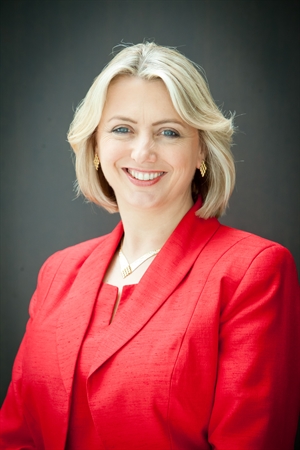
What year did you graduate?
1996
What is your current role?
GP Principal in Lichfield, Professor of GP Education at the University of Birmingham, Chair of the National Academy for Social Prescribing, and elected to be the Chair of the Academy of Medical Royal Colleges as of 22 July 2020.
How did you get into your current role?
It’s complicated! I took a sabbatical to be Students’ Union President during my studies. I had an enjoyable few years as a Gynae trainee but then retrained in academic General Practice.
I quickly became involved with the Royal College of General Practitioners and juggled my developing academic and medical political careers with frontline General Practice.
In 2011 I found myself in a national role (first female Treasurer of the Royal College of General Practitioners, the largest Medical Royal College) and had to make the tough decisions to stop my research work. I thrived and was then encouraged to consider the ‘top job’ and in 2016 was elected as their Chair.
Can you describe a typical day?
Every day is massively varied! Clinical days (I currently do 2 per week) are long and intense as a partner in a large GP practice – usually at least 12 hours of mixing frontline clinical practice (clearly impacted by Covid-19 at the time of writing) as well as the management and administrative responsibilities of being a partner.
My academic work tends to blend with my national roles and typical days involve many meetings (currently all done remotely but usually I have lots of travelling, especially around London but also other main medical hubs in the four nations of the UK). I try to have writing and thinking time as well as many one to one interactions.
I also make time to mentor several emerging leaders but that tends to be via evening phone calls. I also make time to be outdoors every day – whether walking between meetings or doing calls from the garden!
What do you enjoy about your role?
The people, whether the frontline clinical practice and seeing patients and clinical or academic colleagues, or the hugely diverse range of people I encounter in government, politics and health policy.
What do you find challenging in your current role?
I have too many jobs so not enough hours in the day – but as the space- time continuum is not easy to change I have to be disciplined with saying no to doing too many extra things and maintaining my own work-life balance.
What advice would you give to a current student at St George’s who is keen to get into a similar area of work as you?
Keep your options open early in your career and be open to possibilities and opportunities – if something looks really interesting, give yourself permission to change direction.
Getting higher qualifications can help many areas of career advancement but does require big sacrifice, so before your commit time and money to it, think whether it will really make a tangible difference and what you might miss out on – don’t just automatically follow the herd.
If you care about something don’t just mutter about it, do something positive to improve it – that can be extremely and unexpectedly satisfying. Finally, make space for life outside work.
Which aspects of your degree are relevant for your current role?
I remain a frontline clinician and an academic so every element of my degree is important – clearly the later years of study on clinical placement were vitally important, underpinning the massive breadth of work I do as a GP and helping me learn the language of the patient. A background in scientific discipline, spirit of enquiry and basic science help enormously in my academic world and my national roles - I use these to help speak the languages of medicine and science. My later work and training have allowed me to learn the languages of politics, finance and law. It is endlessly fascinating how differently each of these groups thinks and works and so much of my life feels as if I am translating between the various groups!
What would you say were the best and most challenging things about your degree?
I loved the spirit and atmosphere at St George’s and made so many friends for life – in fact I am Godmum to children of three fellow graduates! I learned so much about myself and the world. The main challenges were just around the sheer hard work involved in studying medicine. Whilst I pick things up quickly, I don’t have a particularly good memory for rote learning so had to slog to prepare for exams that required that sort of knowledge regurgitation. It’s so good to see that assessments have moved on so much over the years since then!
If you could go back to your time at St George’s, would you do anything differently?
I think I would say to my younger self, relax and have a bit more fun, worry a bit less about money and take the fun opportunities as they arise.
Do you have any advice or a message for current students at St George’s?
Studying any vocational degree is tough but your University truly values you and the hard work is absolutely worth the investment you are making. Look out for your friends and colleagues as they will be your friends for life and try to enjoy the fun stuff whilst you work hard.
Do you have any advice or a message for students considering studying at St George’s?
St George’s is really special - the experiences, ethos, values and the sense of community I experienced as at student at St George’s are still flourishing and these still sustain me. Every university in the UK is special and will give you a high quality degree, but some add so much more…